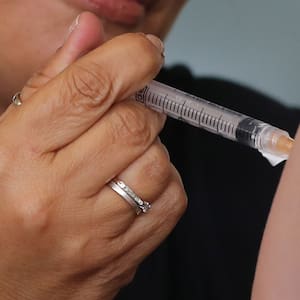The University of Auckland is reminding students to remain vigilant about the risk of meningococcal disease after a student in the university’s halls of residence contracted the disease . The student, who lives at Carlaw Park Student Village, is being treated in hospital, according to the University of Auckland ’s associate director of health Angus Clark. “We wish them a full and speedy recovery,” Clark told students in a written notice.
The university is working with Auckland Regional Public Health Service to identify potential close contacts - currently restricted to three people who shared the student’s accommodation. No further cases of meningococcal have been confirmed in the group “at this stage”. “Meningococcal disease is a serious, but treatable, condition that requires close and prolonged exposure to an infected person for someone else to contract,” Clark wrote.

That meant there was only a low risk to others at the university - “however, we encourage you to remain vigilant”. Anyone aged 13-25 years old entering university residence in the next three months, or who is in their first year of living in a university residence, may be eligible for free meningococcal vaccinations. What is meningococcal disease? Meningococcal disease is an uncommon but life-threatening bacterial infection that lead to two serious illnesses: meningitis (an infection of the membranes that cover the brain) and septicaemia (blood poisoning).
It is passed between people via.























